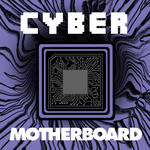Leslie Jones and the Ethics of Amplifying Online Harassment
Soon after news broke that Ghostbusters star Leslie Jones’s website had been hacked and replaced with stolen nude photos and racist memes, I got an urgent email from Whitney Phillips, one of the world’s foremost experts on online trolling and harassment (Phillips quite literally has a doctorate in 4chan). Phillips wanted to know if Motherboard was going to cover the hack, and how we were going to do it.
“I have some thoughts on the ethics of amplification—how, we can't not comment on stories like this, but commenting perpetuates the disgusting narrative and associated imagery. The question being, what's the ethical way not just for journalists and academics to respond, but for individuals, as well?” she said.
“Is more harm than good done when the association of Jones with Harambe is given longer life? I'm honestly not sure,” she added. “BUT I WANT TO HAVE THAT CONVERSATION.”
In her book This Is Why We Can’t Have Nice Things, Phillips explores how early trolls from 4chan’s /b/ board manipulated the media into spreading their message. Though “trolling” is now an outdated, imprecise term, the Twitter harassment and illegal hacking of Jones’s website are amplified the more journalists write about it, the more people retweet it, the more we allow it to stay in our collective consciousness.
Phillips emailed me as I was also considering whether there’s an ethical way to cover abhorrent behavior on the internet—decisions about how and whether to write about racially, sexually, or xenophobically motivated hacks and harassment is a question the Motherboard staff considers all the time, but it’s rarely a conversation that ever makes it to the public.
And so I decided to have that conversation with Phillips and the roles we all play in amplifying questionable or grotesque online behavior.
Hosted on Acast. See acast.com/privacy for more information.





